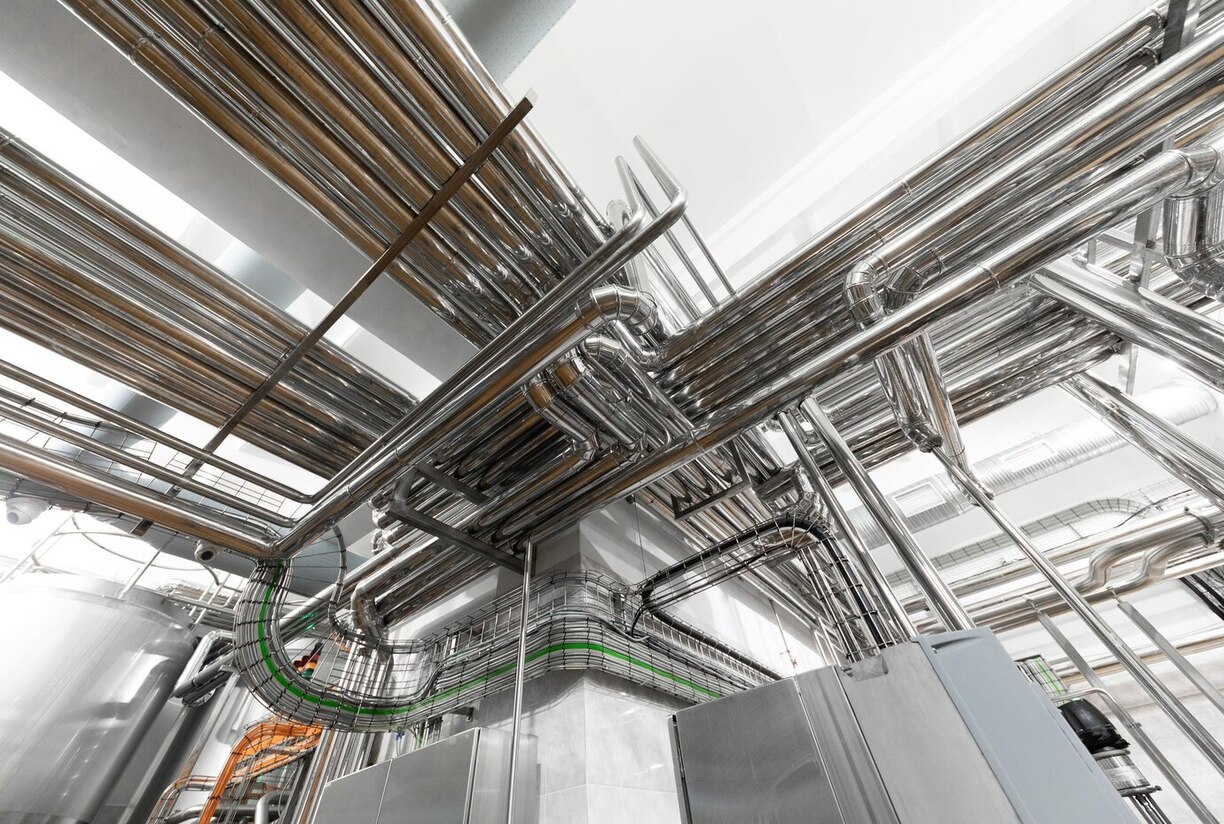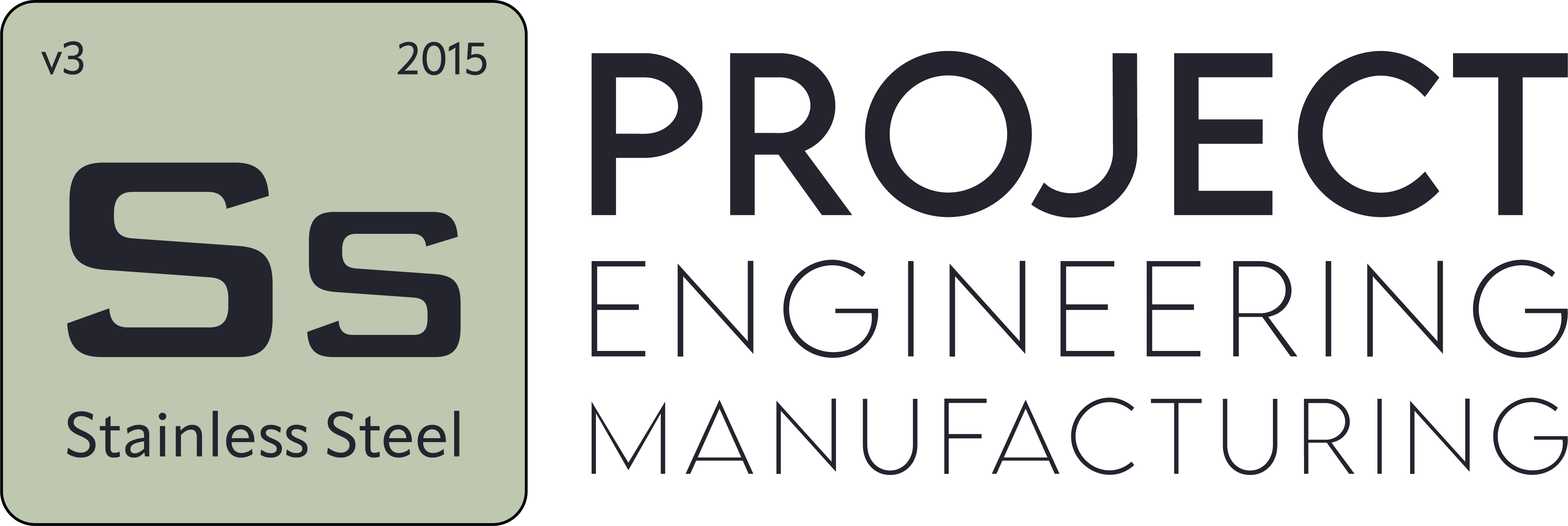Quality and Safety in Hygienic Stainless Steel Plumbing Installation
- Blog
- Quality and Safety in Hygienic Stainless Steel Plumbing Installation
Quality and Safety in Hygienic Stainless Steel Plumbing Installation
Industrial installation systems rely on the quality and safety of the materials used. Especially in the food, pharmaceutical, and healthcare sectors, requirements such as maintaining hygiene, production safety, and high efficiency are important. Stainless steel is an ideal material for installation assemblies in these industries because it is both durable and has a structure resistant to corrosion. Hygienic stainless steel installation assembly not only provides a safe and robust infrastructure but also meets the stringent hygiene requirements of these sectors. Stainless steel helps maintain high standards at every stage of production processes. This article will address the factors that enhance the quality and safety of hygienic stainless steel installation assembly. Stainless steel installation assembly plays an important role, particularly in the industrial field, in ensuring safety and hygiene at high standards. These assembly solutions enable installations to remain durable for longer and operate with high efficiency.
Advantages of Hygienic Stainless Steel Installation Assembly
Hygienic stainless steel installation assembly is of great importance, especially for the food and pharmaceutical industries. The safety, durability, and hygienic nature of these installations play a critical role in the efficiency of production processes and product safety. The advantages provided by stainless steel installation assembly are as follows:
- High Hygienic Standards: Stainless steel, with its smooth surface, prevents the accumulation of bacteria and dirt. This ensures the maintenance of hygiene, especially in food and pharmaceutical production facilities. Stainless steel installation assembly meets high standards in terms of leak-proofing and sterility. The installations protect the health and safety of products while preventing potential microbiological contamination. Additionally, since stainless steel material is resistant to any chemical effects, excellent results are achieved in sanitation processes.
- Durability and Longevity: Stainless steel exhibits high resistance to corrosion, enduring water, chemicals, and abrasive effects for a long time. This allows installations to be used safely for years and reduces maintenance needs. Stainless steel assembly maintains structural integrity, delivering high performance over a long period. This feature ensures long-term use, especially in installations exposed to external factors.
- Easy Cleaning: Hygienic stainless steel is highly advantageous in terms of cleaning. It is not only easy to clean but also resistant to high temperatures. This feature makes it ideal for meeting the regular cleaning and sterilization requirements of installations. Stainless steel does not retain dirt, and any contamination on its surface can be quickly cleaned. Furthermore, the materials used in stainless steel assembly are resistant to chemical cleaners and suitable for long-term cleaning processes.
- Safety: Stainless steel, with its high strength, provides a safe installation infrastructure. Additionally, being resistant to chemicals prevents leaks and potential hazards. This ensures that the installation system operates safely. Stainless steel, being resistant to fire, enhances safety in industrial facilities with fire risks. Moreover, potential leaks or failures in the installation system are minimized thanks to stainless steel assembly.
- Aesthetic and Visual Appeal: Stainless steel is also an aesthetically stylish material. When an installation needs to be both functional and visually modern and aesthetic, stainless steel is an excellent choice. This feature improves the overall appearance of the area where the installation is located while also facilitating the maintenance process. Stainless steel, with its modern and stylish structure, is particularly preferred in architectural projects.
Key Considerations in Hygienic Stainless Steel Installation Assembly
In hygienic stainless steel installation assembly, certain critical factors must be considered to ensure quality and safety. Here are these factors:
- Selection of High-Quality Stainless Steel: The use of high-quality stainless steel is necessary for the installation to be long-lasting and safe. The quality standard of the material used directly affects the durability and hygienic properties of the installation. Stainless steel is typically produced from high-quality alloys such as 304 or 316, and these alloys enhance corrosion resistance. Additionally, compliance with the hygiene requirements set by the food and pharmaceutical industries must also be ensured during material selection. These materials offer excellent performance not only in terms of durability but also from a hygienic perspective.
- Expert Personnel and Equipment: Hygienic stainless steel installation assembly is a process that requires expertise. Using the correct welding and connection techniques during implementation ensures the safety and durability of the installation. Furthermore, the assembly must be carried out using the appropriate equipment and tools. The use of professional equipment ensures that the assembly is done correctly and that performance remains at an optimal level. Implementation by expert personnel enhances the efficiency of the installation.
- Compliance with Hygiene Standards: It is very important that stainless steel installation assembly complies with hygienic standards. Maintaining hygiene, preventing contamination, and ensuring sterilization are necessary at every stage of the installation. All tools and materials used during assembly must be sterilized. This is a critical requirement, especially in the food and pharmaceutical industries. Adhering to hygiene standards at every step enables the achievement of high-quality results.
- Leak-Proofing and Connection Checks: For the safety of stainless steel installation assembly, all connection points must be proper and leak-proof. Regular checks of the connections and the installation after assembly eliminate the possibility of any leaks or failures. These checks are necessary for the long-term efficient operation of the installation. All post-assembly inspections ensure a safe working environment.
- Maintenance and Cleaning Protocols: Regular maintenance and cleaning must be performed for hygienic stainless steel installations to operate efficiently for a long time. Although stainless steel is an easy-to-clean material, following regular cleaning protocols ensures the preservation of hygiene. These protocols extend the lifespan of the installation while also helping maintain hygienic standards. Additionally, regular maintenance contributes to the installation operating with high performance.

Areas of Use for Hygienic Stainless Steel Installation Systems
Stainless steel is widely used in many industrial sectors where hygiene and durability are important. These sectors include food production, pharmaceutical production, drinking water treatment, and healthcare. In food production facilities, hygienic stainless steel installation systems are used in all equipment that comes into direct contact with food. Food processing machines, storage tanks, and pipelines are made of stainless steel. These installation systems ensure the protection of food safety and hygiene.
Likewise, hygienic stainless steel installations play an important role in pharmaceutical production and the healthcare sector. In pharmaceutical production facilities, stainless steel pipelines and tanks are used to provide hygienic environments during the production of pharmaceuticals. These environments must be resistant to chemicals and capable of being sterilized. Additionally, the use of stainless steel in drinking water treatment facilities is necessary to ensure that the water remains pure and clean. Stainless steel installation assembly ensures that water is safely treated and transported at every stage.
Hygienic stainless steel installation assembly is of critical importance, especially for the safety and efficiency of production processes in the food, pharmaceutical, and healthcare industries. Stainless steel, with its durability, hygienic properties, and long-lasting structure, is the most suitable solution for installation systems in these sectors. Installations made with stainless steel assembly achieve high hygiene standards while also enabling the construction of safe, efficient, and long-lasting structures. These assembly solutions are the key to ensuring quality and safety in industrial installation systems. Hygienic stainless steel installation assembly is indispensable for healthy production processes, efficient operation, and safe environments.


